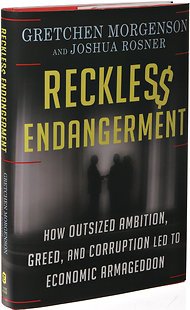Aurora - Travis Fonseca's basement is heaving.
A concrete wave rolls up from the wall, crests in the middle of the floor and then slides down the other side. The groundswell has transformed a straight windowsill into a frowning ledge and a smooth concrete floor into slabs split by inch-wide, 20-foot- long cracks.
After nearly five years of trying to get the homebuilder to fix the problem, Fonseca is finally going to arbitration. But the language in his purchasing contract makes it sound as if he doesn't even have a chance.
"I waived a lot of my rights," he said. "I didn't realize what I was signing with all the papers at the closing."
Fonseca isn't alone. At least 20 of the state's biggest homebuilders have similar contracts in which home owners waive many legal remedies to construction defects, according to the Colorado Home Alliance, a homeowner advocacy group that has spent weeks collecting the contracts.
State Rep. Jack Pommer, D-Boulder, planned to file a bill Friday that may offer some protection to homeowners who move into a new home only to find construction defects down the road. But at the last minute, House Speaker Andrew Romanoff, D-Denver, asked him to hold off until they could meet this week with Colorado Concern, which represents 100 Colorado executives.
There has been a steady increase in contractual waivers over the past few years, said real estate professor Mark Levine of the University of Denver.
"The builders are really getting more jittery on claims against them and trying to insulate themselves as much as possible," Levine said.
For instance, a waiver from Richmond American Homes of Colorado includes "negligence, fraud or misrepresentation" that results in "damages, personal injury, mental anguish or distress." The company did not answer requests for comment.
"Unenforceable" clauses
Many of the clauses used by homebuilders, such as waiving legal rights in the event of gross negligence or fraud, probably would be found "unconscionable and unenforceable" by a court, Levine said.
"But they put the language in anyway, thinking an uninformed or legally uneducated homeowner will never seek help."
If it moves forward, the bill's backers can expect all-out war with Colorado homebuilders, who have long wielded considerable political and financial clout.
"This measure has only one purpose, to create more business for lawyers that benefit financially by collecting exorbitant contingency fees that don't benefit their clients," said Amie Mayhew, spokeswoman for the Colorado Association of Home Builders.
The magnitude of the problem is uncertain, but Colorado has seen an explosion of homebuilding in the past decade. About 540,000 single-family and multifamily homes were built between 1995 and 2006, according to information provided by the homebuilders association.
Four years ago, the homebuilders said their insurance rates had skyrocketed because of the number of suits being filed against them. They persuaded the legislature to pass a bill that, among other things, instituted hard caps on the amount of damages that could be awarded in lawsuits against them.
Opponents of that bill, who contended the measure didn't adequately protect consumers from shoddy home construction, backed a proposed constitutional amendment the next year to roll back the caps. The homebuilders spent 10 times as much money fighting it as the proponents spent backing it. Voters defeated the amendment.
Pommer's bill doesn't increase caps or institute a new legal remedy. But it says homeowners can't waive or limit legal rights, remedies or damages already protected by the Colorado Consumer Protection Act or state statutes.
For instance, a contract for owners in Denver's Beauvallon development, obtained from the home alliance, states that owners waive their rights to "special damages and consequential damages and the right to receive punitive or exemplary damages." Because the state's consumer protection act permits some of those damages, a homeowner could not sign those rights away, under the bill.
Beauvallon's developer did not return calls for comment.
Exceptions in warranties
Oftentimes, homeowners rely on warranties, which they believe adequately protect them long-term. But they can contain more exceptions than coverage. In Fonseca's case, Engle Homes Colorado, which built his house, denied responsibility because of homeowner improvements.
"We know that the Fonsecas have made changes in their house since they purchased it," said regional manager Don Merrell. "Since it was not performed by Engle, the work ... would not be covered by the 10-year warranty."
Romanoff and Senate President Joan Fitz-Gerald, D-Jefferson County, could not be reached for comment on Pommer's bill.
Senate Minority Leader Andy McElhany, R-Colorado Springs, who was the sponsor of the 2003 bill, said he didn't understand why another bill would be on the table.
"I would take a very careful view of legislation that interfered with two willing parties who are contracting and have a meeting of the minds," he said.
Staff writer Karen Crummy can be reached at 303-954-1594 or This e-mail address is being protected from spam bots, you need JavaScript enabled to view it .
Advocacy group lists builders with waivers
Homebuilders that have been known to include waiver language in their documents include:
Source: Colorado Home Alliance
http://www.denverpost.com/colleges/ci_5248388






